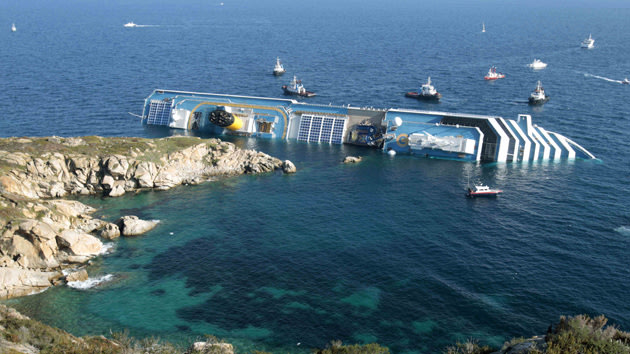
What's the Christian response to technological disasters such as the tragic sinking of the Italian cruise liner over the weekend?
The first thing is to pray—to pray for those unaccounted for, to pray for the families of those who've died, to pray for those who have to wrestle with their part in the tragedy. At these moments, it's wonderful to know there is a God who can bring good out of the worst situations (Genesis 50 v 20).
But the comparisons in the media all weekend between the Costa Concordia and the Titanic—not least the chaos and fighting for the limited places on the lifeboats—points us to another right reaction; one which takes us back long before Leonardo and Kate stood on the prow to the warbling strains of Celine Dion.
Titanic was built at the height of the optimism about man's future, following a century of technological progress, and the civilising of the world. It's "unsinkability" was hailed as part of the optimistic triumph of technology and science to solve the world's problems. It's sinking, and the start of the first world war less than two years later heralded the end of that optimism, and a bleaker view of humanity's chances for the future.
The response of Christians to the sinking at the time dwelled upon these themes. Pulpits thundered with sermons recalling the Tower of Babel, and how God had crushed the hubris of men to reach for the skies. The same message was rehearsed in the haunting classic Blues Song by Blind WIllie Johnson that proclaimed: "God moves on the waters".
It is a message we need to hear again and again. The response of pundits to the Costa Concordia tragedy has been to ask: "How could this possibly happen to a ship equipped with all the modern safety features we can think of". The inevitable response of the enquiries into the sinking will be to recommend further technological developments that will "prevent the same thing happening again".
Who knows. The incredible God-given ingenuity of man may one day give us a world of ships and planes and cars and trains that are completely safe. But our eternal destiny will be completely unsafe if we continue thinking that "we did it". For our God "has scattered the proud in the thoughts of their hearts; he has brought down the mighty from their thrones and exalted those of humble estate" (Luke 1 v 51-52).

Tim Thornborough is the founder and Publishing Director of The Good Book Company. He is series editor of Explore Bible-reading notes, the author of The Very Best Bible Stories series, and has contributed to many books published by The Good Book Company and others. Tim is married to Kathy, and they have three adult daughters.
